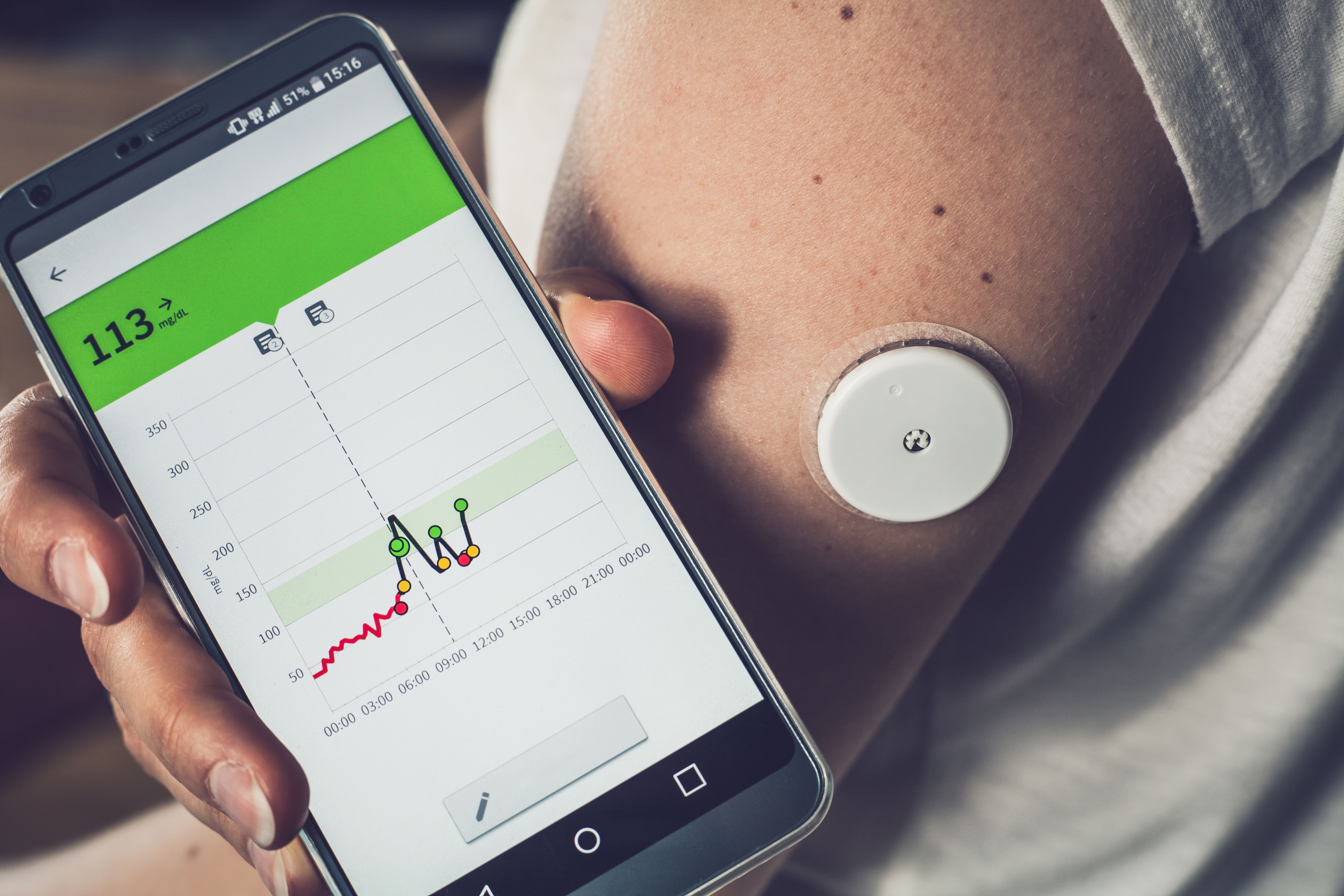The Relationship Between Glucose Fluctuations and Cognition in Patients With Type 1 Diabetes
A new study found that when glucose is either very high or low in patients with type 1 diabetes, cognition is slower; however, slightly above average glucose led to peak cognitive performance.
lukszczepanski/AdobeStock

In a new study of type 1 diabetes (T1D) and cognition, investigators used advances in digital testing to demonstrate that naturally occurring glucose fluctuations impact cognitive function in individuals with T1D. According to the results, when glucose is atypical, either very high or low, cognition is slower, though some individuals may be more susceptible to the cognitive effects of glucose fluctuations.1,2
“We found that changes in glucose were related to changes in thinking—particularly how fast someone is able to think and respond. Low glucose levels (hypoglycemia) and very high glucose levels (hyperglycemia) were related to slower reaction times across most participants when compared with glucose in the normal range and moderately high glucose,” Laura Germine, PhD, exclusively told Psychiatric Times. Germine is director of the Laboratory for Brain and Cognitive Health Technology and technical director of McLean Institute for Technology in Psychiatry at McLean Hospital. “What was most interesting though was how much patients differed in the way their everyday glucose changes impacted their thinking. Some patients were impacted a lot by these changes in glucose—while other patients weren’t impacted much at all. Factors like age and other health conditions seemed to be important for determining who was most impacted.”
Using digital glucose sensors and smartphone-based cognitive tests, investigators collected glucose and cognitive data in 200 participants with T1D. Glucose data were collected every 5 minutes and cognitive data were collected 3 times per day for 15 days. Data collection was done unobtrusively to allow participants to go about their daily lives, thus allowing researchers to examine the natural impact of glucose variability on cognition. Then, investigators used machine learning to test whether the impact of glucose on cognition differed among individuals.
“We often think of cognition as being stable over hours and days, but it really is not, especially for people with diseases like diabetes. Our findings show that people with T1D will experience changes in how well and how fast they can think that are related to their glucose. Most importantly though, these changes are going to be a little different for everyone—our results support an individualized approach that acknowledges that no 2 patients are exactly alike in how their glucose impacts their cognition,” said Germine.
Cognitive function was found to be impaired when glucose was considerably higher or lower than usual; importantly, this effect was observed for processing speed but not sustained attention. Investigators also found that affected cognitive speed differed among participants, particularly for those like older adults or adults with health conditions, who were more strongly impacted by glucose fluctuations than others.
Additionally, and coming as a surprise to investigators, peak cognitive performance was noted when glucose levels were slightly above their normal, ‘healthy’ range.
“We often assume that what is most healthy is also going to be associated with better functioning and feeling better—and we tell patients that too! While this might be true in the long-term (eg, over months or years), it was not the case in the short term among patients with T1D. We found that short-term elevations in glucose—above what is actually healthy—were associated with faster thinking and reaction times. The brain likes a bit of extra glucose, even though we know that in the long-term these glucose levels are not healthy,” Germine told Psychiatric Times. “Based on this result, patients should expect that if they are making efforts to lower their blood glucose to achieve better health, this might temporarily result in slightly slower thinking speed even though it is healthier in the long run.”
Full results can be found in npj Digital Medicine.2
References
1. Study shows glucose levels affect cognitive performance in people with type 1 diabetes differently. McLean Hospital. News release. March 18, 2024. https://medicalxpress.com/news/2024-03-glucose-affect-cognitive-people-diabetes.html#
2. Hawks ZW, Beck ED, Jung L, et al. Dynamic associations between glucose and ecological momentary cognition in type 1 diabetes. npj Digital Medicine. 2024;7(59).
